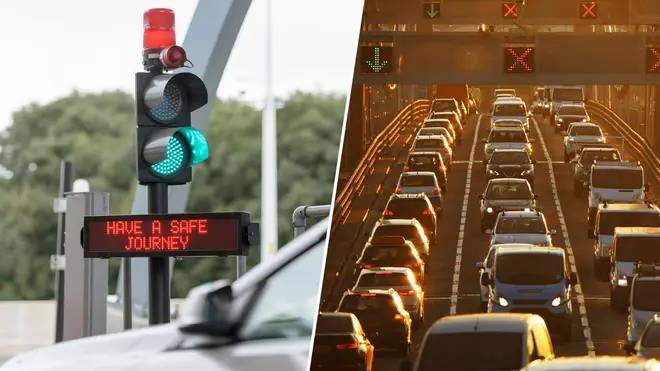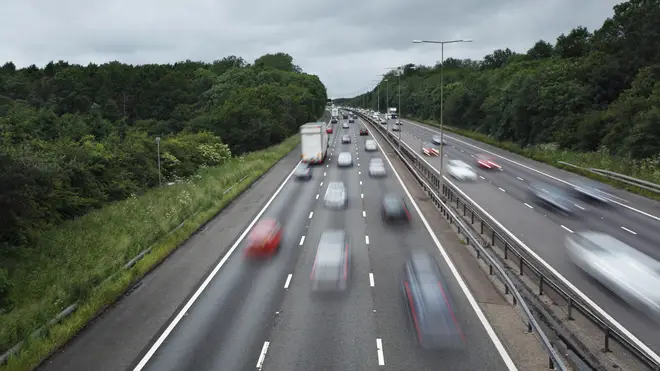On Air Now
The EE Official Big Top 40 from Global 4pm - 7pm
23 March 2022, 10:56 | Updated: 23 March 2022, 15:26

UK motorways could become toll roads to help pay for cut in fuel tax.
Drivers in the UK could have to pay to drive on longer journeys in the future.
According to reports, the government is said to be considering a network of toll roads as a way to bring in more money, with fuel duty expected to be cut.
Chancellor Rishi Sunak is set to reduce fuel duty as a result of a huge increase in petrol prices.
In his Spring statement today, government sources suggest he is likely to cut the tax - which currently stands at 58p a litre - by 5p.


Rishi Sunak unveils plans to help motorists in Spring Statement
But the government is looking at other road incomes to tackle both this cut in fuel duty, and a fall in revenues from tax due to there being more electric cars on the road.
There is currently only one toll road in the UK, which is located in the West Midlands and is owned by a private investment firm.
It charges £7.10 on weekdays for cars, but it could be used to model other roads if the government implements tolls across the country.
A Downing Street source told The Times: “It’s definitely being taken very seriously in Downing Street.
“The policy unit is giving it a thorough look and the problems with fuel duty now make it more urgent.”

Ministers are reportedly divided over whether to introduce tolls temporarily, or whether to make them a permanent feature of UK roads.
This comes as Chancellor Rishi Sunak hinted at what is to come is his budget on Wednesday.
He said he 'can't comment on specific things', adding: "But what I would say, I understand that, I have a rural constituency, people are incredibly reliant on their cars and this is one of the biggest bills that people face, watching it go up, right, we're all seeing that, when we're filling up our cars. I get that."
If reductions are introduced on fuel duty, they are set to temporary due to the government's commitments to becoming net-zero by 2050.
As part of this, the government is also expected to announce a total ban on the sale of petrol and diesel cars by 2030.